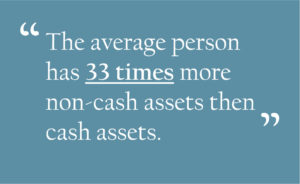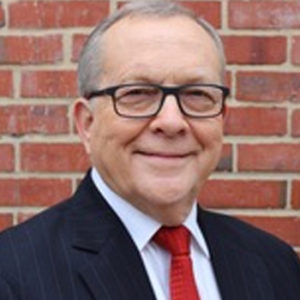Most giving today consists of cash gifts from your givers. They are trusting that you will use the cash to fulfill the church’s mission in the most prudent and efficient way possible. This giving has several key attributes:
- Gifts are in the form of cash (“cash gifts”);
- Gifts are 100% of the cash (an “outright gift”), and not split into a gift of income from the cash, or in the alternative, a gift of the remainder from the cash after income is paid to another person (so-called “split-interest gifts”); and
- Gifts are unrestricted and can be used by the church as it sees fit (“unrestricted gifts”).
Outright, unrestricted cash gifts are the bedrock of charitable giving. But there are other ways of giving, so-called “Planned Giving.” In the philanthropic world, this frequently takes the form of:
- Bequests under a will or living trust;
- Split-interest remainder gifts where a person who is not a charity receives income for life or term of years, such as charitable remainder trusts, pooled income funds, gift annuities, and retained life interests in a residence or farm;
- Split-interest income gifts where the charity receives income for the life of an individual or a term of years, such as Charitable Lead Trusts;
- Bargain Sales/Gifts of an Undivided Interest, where a donor gives only a portion of an asset (other than cash) to charity.
Churches have historically focused on outright, unrestricted cash gifts; however, many are increasingly requesting non-cash gifts. Why? People can give more from their assets – from their wealth – than they can from their monthly, discretionary cash. How? The average person has thirty-three times more non-cash assets then cash assets. Yes, 33x! For these reasons, it makes sense to ask for givers to consider their non-cash assets as a way of giving to the church.

Why doesn’t every church pursue non-cash gifts?! Very simply, non-cash assets are sometimes complicated, hard to liquidate, can consume significant administrative time, entail liabilities, and can create negative cash flow. Further, as planned gifts, they are not cash-in-hand for churches as they are promised, but not actualized.
To address the first concern, churches often enlist the help of a conduit charity to receive, administer, and sell the non-cash gift, distributing typically anywhere from 95% to 99% to the referring church. This partnership helps churches access the support they and their givers’ need in a seamless, cost-efficient manner.
The second concern is a matter of timing and, understandably, isn’t always a fit for churches in need of quick cash support. Most churches cannot afford to spend the time and money to have their generosity staff pursue planned gifts because they need current cash now, not three or five years down the road. Further, and most importantly, churches perceive “planned gifts” as deferred gifts, that do not come to fruition typically until the giver dies. In short, churches too often find themselves needing to devote all their time and attention to bringing in cash now.
Many of the more sophisticated fundraising charities have taken the approach of combining a solicitation for an outright gift, in conjunction with a request for a bequest or split-interest income gift. These are so-called “blended gifts.”
One example of how a church can use a blended gift would be a Stewardship Pastor who is seeking gifts from a giver but does not just ask for cash for operations. Instead, they invite the prospective giver to prayerfully consider a cash gift for major capital improvements or to fund an endowment as well as a bequest in their will. For givers who have already been approached numerous times for gifts and can no longer consider a major gift of cash, the Stewardship Pastor will frequently invite the prospective giver(s) to consider a split-interest income gift. In this scenario, the giver and his or her spouse receive income for life, and the gifted asset (the “remainder”) passes to the church upon their passing.
However, once again, a split-interest income gift does not truly address the church’s need for current cash. We suggest planned gifts, which may be deferred in nature, be turned into current gifts, where the charity can use the cash resulting from the split-interest gift today.
We’ll cover these topics in greater detail at our 1-Day Planned Giving training at Northridge Church in Plymouth, MI, on Tuesday, February 18. You will receive professional training and education to confidently talk with givers about planned gifts. Find out more about this event and register here. Space is limited – register today!
About the Author

Emanuel J. Kallina, II
Emanuel (“Emil”) J. Kallina, II was educated at Bowdoin College (BA), the University of Maryland School of Law (J.D.), and New York University School of Law (LL.M. in Taxation). He is licensed to practice law in Maryland and the District of Columbia, and is admitted to practice before the U.S. Fourth Circuit Court of Appeals, the U.S. District Court for the Districts of Maryland and D.C., and the U.S. Tax Court.
While Mr. Kallina currently focuses his practice on estate and charitable planning for high net worth individuals, he has practiced extensively over the years in the related fields of business law, corporate tax law, partnerships, and real estate.
Mr. Kallina is a co-founder and member of the Board of Directors of the Planned Giving Design Center (www.pgdc.net), a former member of the Board of Directors of the National Committee on Planned Giving (“NCPG”), former Chairman (5 years) of the Government Relations Committee of the NCPG, a co-founder of the Chesapeake Planned Giving Council, Chairman of the Board and President of The James Foundation, a member of the Board of Directors of Search Ministries, Inc., a member of the Board of Directors of the Smith Barney Charitable Trust, and a member of the boards of trustees or directors of a number of other non-profits. He is frequently an expert witness on estate planning and charitable matters.
Mr. Kallina has testified on a number of occasions before the IRS on pending matters, has worked extensively with the staff of the various Congressional committees regarding charitable legislation, and heads a national group of charitable giving practitioners that meets informally with the IRS to discuss ruling policy in the planned giving area.
Mr. Kallina is a nationally recognized speaker on estate planning and charitable giving and a frequent author on these topics.
